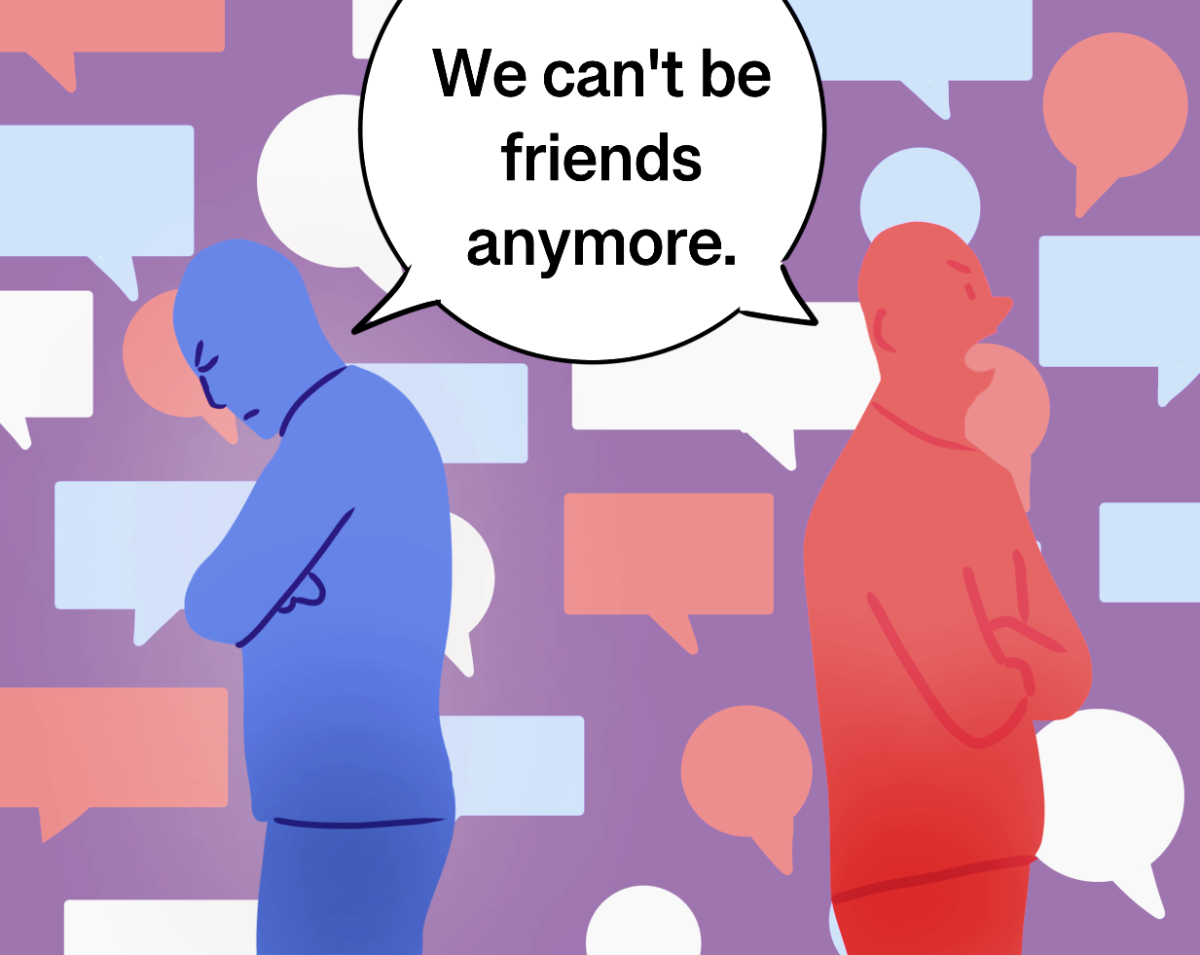TRUTH MATTERS… Donate to support excellence in student journalism
The harsh reality about political beliefs is that they are far from just an opinion.
The thoughts and actions of our government encapsulate many parts of our lives. As a result, how we think the government should treat certain issues can lead to polarizing and divisive feedback from our peers.
In just the last several years, we’ve witnessed a plethora of political developments that have garnered extreme reactions. Amidst the rise of Donald Trump, the overturning of Roe v. Wade and the COVID-19 pandemic, politically charged debates have sparked both in person and online.
For social media in particular, the tendency of online platforms to heavily simplify these debates creates an environment in which someone might start generalizing an entire side of the political spectrum.
Very strong generalizations, compounded by how pivotal politics are in our daily lives, tamper with our relationships with others.
YouGov, a survey company that tracks data on public opinion, shines light on this fact. According to one of their surveys, a startling 26% of Americans have ended friendships because of their political beliefs since 2016.
Social media continually contributes to an individual developing divisive political stances. The algorithm on apps like Instagram and Twitter will recommend things that are tailored to affirming, never challenging, the user’s beliefs.
Algorithms also work to shadow ban certain content. Shadow banning is the phenomenon where certain users or topics are restricted from someone’s view without it being told to the user.
Shadow banning encourages the same content to be shown to a user over and over again, inflating the user’s generalizations and feeding them the belief that they are more correct than their friends.
Viewers are predisposed to think a certain way and make assumptions because all of these other people on online platforms are agreeing with them. It then becomes easy to believe the friend with opposing political views must automatically be in the wrong.
A moderate and someone who leans more on the left can have their friendship jeopardized at the snap of some TikTok influencer’s fingers.
Recently, an Instagram reel went viral of two young women who said that despite one being a Democrat and the other a Republican, they were still best friends. Of course, since this is social media, chaos ensued in the comment section.
People were claiming, without knowing anything else about her, that because one friend was Republican, she does not support human rights. This is quite a hostile claim, and one that can be seen all across social media in similar politics-focused communities.
It seems easier than ever to end a friendship over whatever you want. Obviously, every person reserves the right to decide whether or not they stay in a relationship.
But it is quite startling to think that a friendship of years can end so quickly. We’re so quick to assume that when someone’s political views don’t align with our own, they are incapable of being reasoned with.
If you truly are concerned that your friend is in support of something that pertains to prejudiced views against other groups of people, ask them what they think about these issues.
Don’t just assume that they are in support of every single bad thing ever.
However, that isn’t to say that you should maintain a friendship with someone who you feel is bigoted out of the hope that you can change them. Friendships are meant to be healthy exchanges of support and kindness, and when you feel you’re just arguing constantly without anything to show for it, then maybe you should stop seeing them.
Being a friend is to be there for one another, and if you feel like politics can get in the way of that, such as a pro-life person discouraging a friend from getting an abortion, then feel free to take a break from being with them.
Politics are an incredibly sensitive topic, and people tend to react sensitively to any disagreement within the political sphere.
Just because someone is part of a party that is different from your own, it does not mean they should automatically be removed from your life.
Social media has distorted how we think about people who disagree with us and contributes to a scarily divisive environment. Don’t let it, or any other prejudices you may have accumulated over the years interfere with how you perceive your friends
Be realistic, and most of all, be communicative with your friends.



